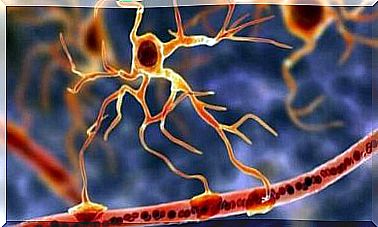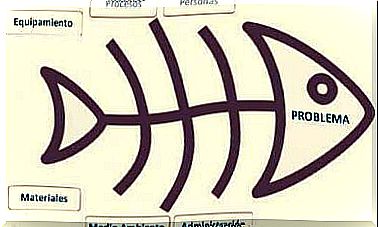Cognitive Patience: Work The World Without Urgency

Cognitive patience, is it something we have lost? Have we left behind this valuable ability to understand and process reality in a relaxed but complex way? According to some neuroscientists, the answer to this question is “yes”.
You can see it everywhere nowadays, especially if you think about the way we process all the information we get from social media: fast and without contrasts.
The term cognitive patience was recently coined by Maryanne Wolf. She is a cognitive neuroscientist and developmental psychologist at the University of California. In her book Reader, Come Home , she talks about this fascinating phenomenon, which has affected her for a long time.
Many readers today cannot read for an hour straight without checking their phone several times. We have become impatient and have lost our ability to focus, even though we still do not know how serious it is. Even Stephen King has discussed a new phenomenon: audiobooks. Audiobooks allow you to do your daily chores while someone with a good voice reads a book to you. So the amount of effort is minimal.
As you can guess, cognitive patience is linked to the ability to wait or postpone the need. It is our ability to calmly process information, a situation or an event.
It is also an ability we use to give things meaning when we have reflected on them in advance. It also means being able to push distractions away and focus on a specific goal without urgency. You will not feel any pressure if you know how to use our most important abilities: attention.
Let’s take a look at this.

“Foaming” is another recent phenomenon that is on the rise. It refers to our tendency to read things quickly and only care about the beginning and end of a text or a piece of information. If you do, you will end up with only the most superficial part of the text in front of you: a book, an article, an instruction manual, etc.
The opposite of “foaming” is “scanning”. Scanning means that you carefully analyze information. These two terms sum up the trends we see in a large part of the population. This tendency is a result of the loss of an essential ability: cognitive patience.
If you are in a hurry when looking out into the world, you will never understand its secrets. If you are in too much of a hurry to get information from your surroundings, it can end up with a handful of half-truths. If you do not use your analytical, critical and reflective abilities, you will probably believe in things that are not true.
We must all realize that a loss of our cognitive patience makes us more vulnerable to demagoguery. In a world obsessed with speed and controlled by the rapid transmission of information, we must behave sensitively, critically and accurately.

We live in a society that does not value patience. For example, important, powerful people do not have to wait their turn in the queue. When we are children, people say that if we want something, we have to chase it. Yes, determination is important. But it is even more important to learn to be patient and learn that success and wisdom take time.
- If you want to start being cognitively patient, you must realize that patience does not give you power over circumstances. What it does is it gives you more power over yourself, no matter the circumstances.
- Cognitive patience also means re-learning to see the world from a child’s point of view. You have to get back that fascination, curiosity and instinctive appreciation for details and nuances.
- You also have to be very critical. Let yourself be guided by the thirst for knowledge and your search for truth about what you hear, see and above all what you read.
- It is also worth remembering that cognitive patience is not a passive ability. The exact opposite, in fact. No process takes so much power, spontaneity and open mind.
In addition, a study published in the Journal of Positive Psychology shows that using this ability on a daily basis reduces the risk of depression and other mood-related disorders.
The answer to life’s challenges
It is also the best answer to life’s daily challenges. If you are patient and learn to process the world with less urgency, you will appreciate all the magical details, its beauty and truth much more.
Work on your attention and discover how good it is not to be in a hurry. You should also remember that in the end , patience simply means concentrating your efforts on a specific goal.









